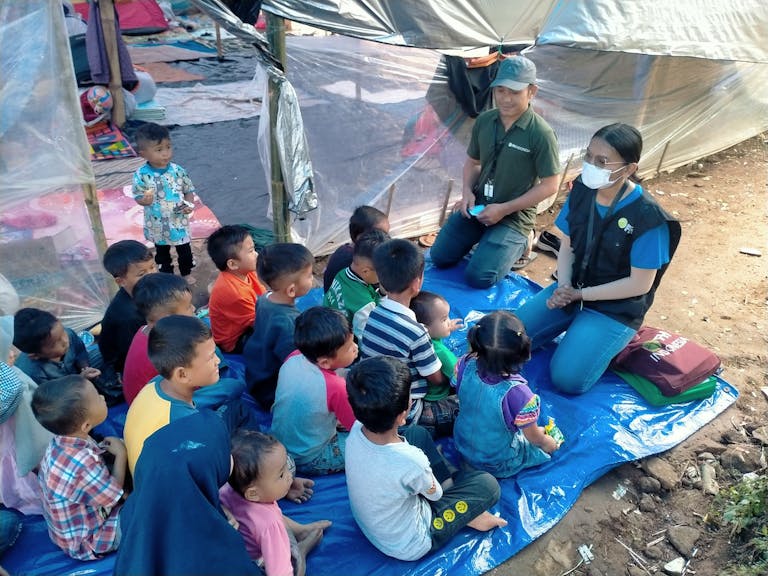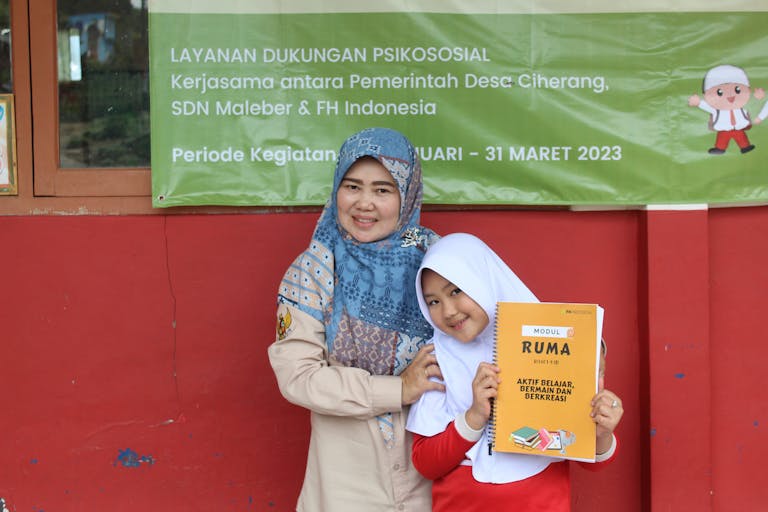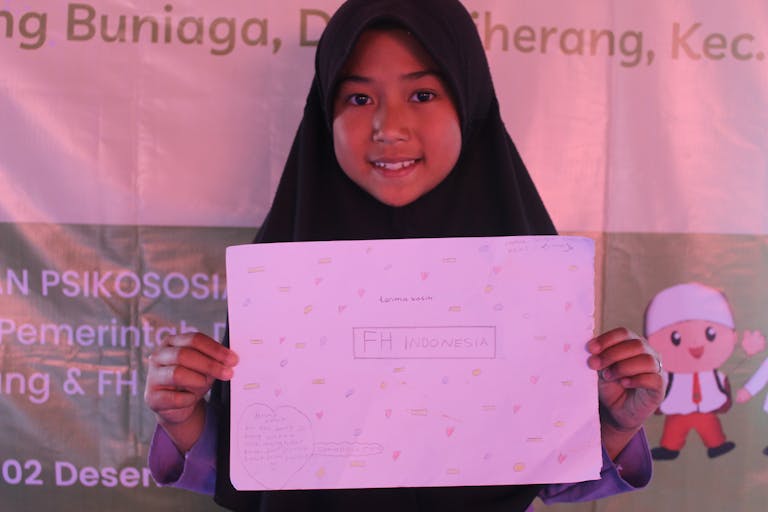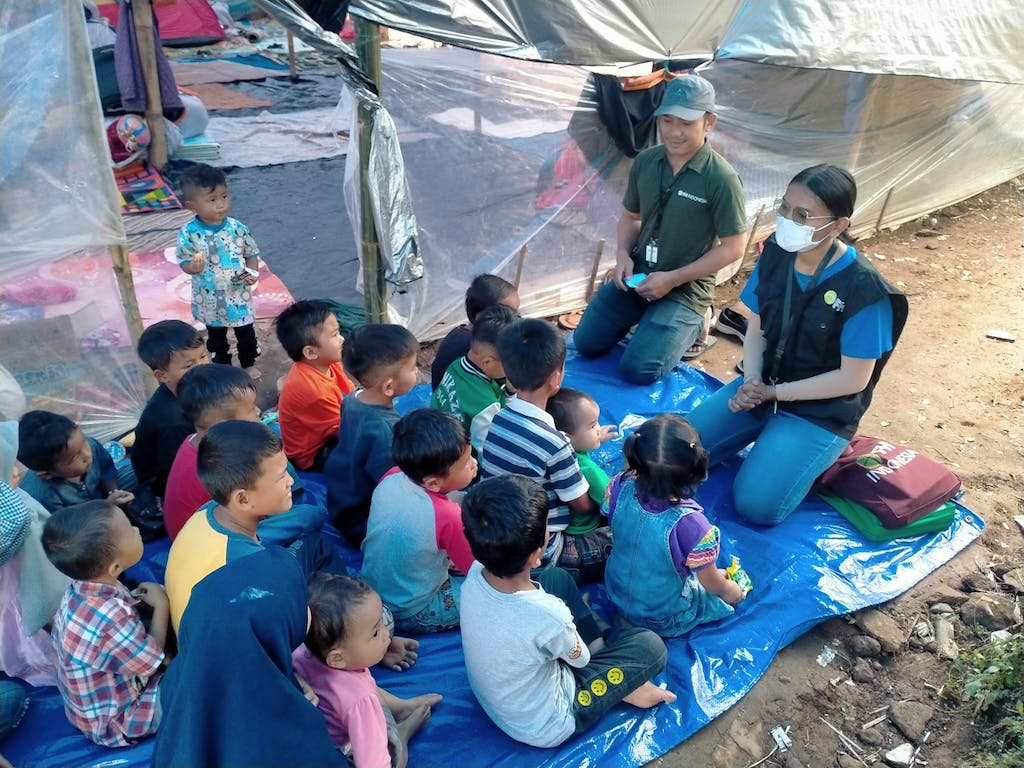Thousands of children and their families were affected when a 5.6 magnitude earthquake rocked the city of Cianjur in West Java, Indonesia, last November. The National Disaster Management Agency (BNPB) reported there were 602 deaths, and 114,683 people were evacuated from their homes. In all, 67,504 houses, 281 places of worship, and 18 health facilities were damaged or destroyed.
Among the many children affected by the deeply traumatizing earthquake were Adlina, 9, and Salsa, 10. For days they were terrified by the strong aftershocks that followed the quake, convinced it was starting all over again.
When the dust settled, Salsa’s family was living in a tent they received from emergency workers. They were also given water and some food to eat, and they shared a temporary toilet with other families because their house had been heavily damaged and was not safe to enter.
Adlina’s family was a little more fortunate. They were able to stay in their house since it was only lightly damaged. They still had access to clean water and toilet facilities of their own.
Food for the Hungry (FH) worked closely with the Christian Community for Disaster Mitigation in Indonesia to serve large numbers of children like Adlina and Salsa and their families who were affected by the Cianjur earthquake. They provided emergency supplies, health services, and constructed WASH facilities and longer term shelters.

Schools Damaged and Destroyed, But Children’s Education Continued
The earthquake also damaged or destroyed 701 schools in the area. FH worked together with Tearfund UK and The HEAD Foundation to help children who were affected by the earthquake continue to learn as their communities were rebuilding. This disaster response project was called the “Tent for Emergency Playing and Learning (TERPAL).” The project was designed to stabilize both the emotional health and education of the children by providing a safe and fun environment.
FH implemented a fun learning method for children to play and study in regular meeting sessions of Kids Club. It centered on a digital learning application designed to provide children in remote or challenging areas with access to quality educational content.

The lessons are interactive, incorporating educational games and engaging videos. FH staff and volunteers offered support to the children, encouraging them to continue their studies so they could flourish amid adversity.
FH’s support has a significant impact on the children, providing both educational opportunity and psychosocial support to help them recover from the shock of the disaster FH Kids Clubs gave the children a safe place to play, while preventing them from falling far behind in lessons covering basic literacy and numeracy.
Adlina and Salsa are two of the 463 children who attended the Kids Clubs. Adlina’s family said the experience made her more enthusiastic about returning to learning and confident about being around others again. Staff remarked that Alina was generous about sharing her toys and food with the other children.
Initially, Salsa was slower to interact. She was still scared and sad about losing her home. But soon, she was playing and studying with others in Kids Club, and she particularly enjoyed drawing. She told staff members it made her feel less afraid.

Families Continue Forward
Both girls are now back at their schools and reunited with their friends. Their families say the TERPAL project revitalized their interest in learning and gave them a renewed enthusiasm for education. They are looking to a brighter and more resilient future after overcoming the challenges of disaster.
When disaster strikes – whether hurricanes, droughts, fires, famines, epidemics, or wars – people of all ages are devastated, leaving them unable to meet their basic needs for food, clean water, and shelter. They often also need medical, mental, and social health support.
FH is well-known as a first responder to crises whether natural or manmade, with relationships and systems in place to quickly respond when a crisis hits. Your support of FH Emergency Response efforts helps us be crisis-ready and able to quickly mobilize relief when earthquakes like and other natural disasters strike.


